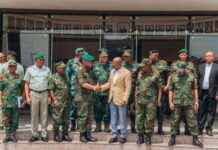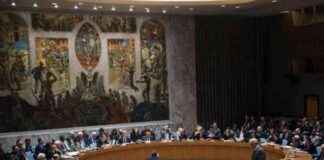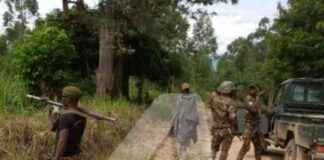In a shocking turn of events on the night of March 10, 2025, rebels belonging to the AFC/M23 seized control of the Kaziba Centre after engaging in a fierce day-long battle against the Armed Forces of the Democratic Republic of Congo (FARDC) supported by the Wazalendo militia. Located more than 50 kilometers away from the bustling city of Bukavu, Kaziba found itself at the center of turmoil and conflict.
Local sources reported hearing ongoing gunfire and explosions emanating from the Lwanguku royal court, indicating that the rebel presence was still strong in the area. While some parts of Kaziba were visibly occupied by the rebels, not the entire center fell under their control, creating a sense of unease and uncertainty among the local population.
“It is the M23 elements who are currently stationed there. We started seeing their vehicles around 7 p.m.,” shared another member of the local civil society, shedding light on the timeline of events leading up to the rebel occupation. According to various reports from the area, the rebels had traversed through Nyangezi, Nyanfunze, Mushenyi, and Cibanda before making their way to the chieftaincy of Kaziba. This marked the second chieftaincy in the Walungu territory to be impacted by the brutal consequences of this ongoing conflict, following in the footsteps of Ngweshe.
Expert Insights on the AFC/M23 Rebellion
As the region grapples with the repercussions of the AFC/M23 occupation of Kaziba Centre, experts weigh in on the implications of such unrest in the Sud-Kivu province. Dr. Jean-Pierre Mabaya, a renowned political analyst specializing in African conflicts, emphasizes the need for swift and decisive action to quell the rebellion and restore peace in the region.
“The resurgence of groups like the AFC/M23 poses a significant threat to the stability and security of the region. It is imperative that both local and international stakeholders come together to address the root causes of these conflicts and prevent further escalation of violence,” Dr. Mabaya remarked during a recent interview.
Community Responses and Support Efforts
In the wake of the troubling developments in Kaziba, local residents have banded together to provide support and assistance to those affected by the rebel occupation. Humanitarian organizations have mobilized resources to offer aid to displaced families and ensure access to essential services such as food, shelter, and medical care.
“We cannot stand idly by while our communities suffer. It is our collective responsibility to support one another during times of crisis and work towards building a more resilient and united society,” stated Marie, a volunteer at a local relief organization, as she distributed emergency supplies to families impacted by the conflict.
As the situation in Kaziba Centre continues to unfold, it remains crucial for all stakeholders to prioritize the safety and well-being of the local population and work towards a sustainable resolution that promotes peace and stability in the region. Only through concerted efforts and collaborative action can the community hope to overcome the challenges posed by the ongoing conflict and pave the way for a brighter and more secure future.

















